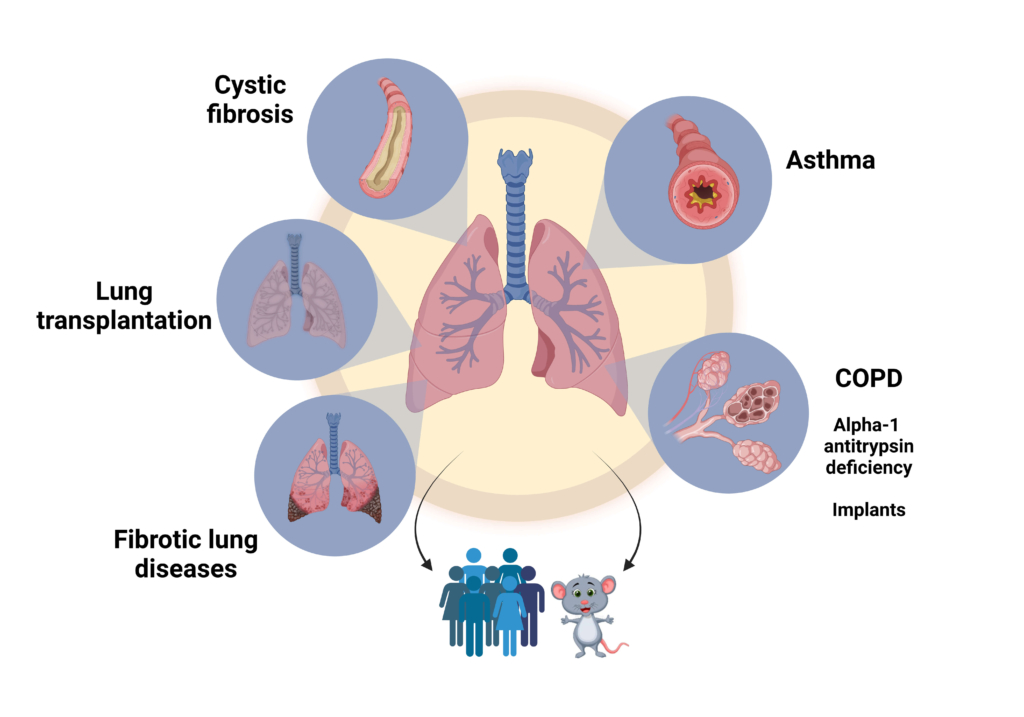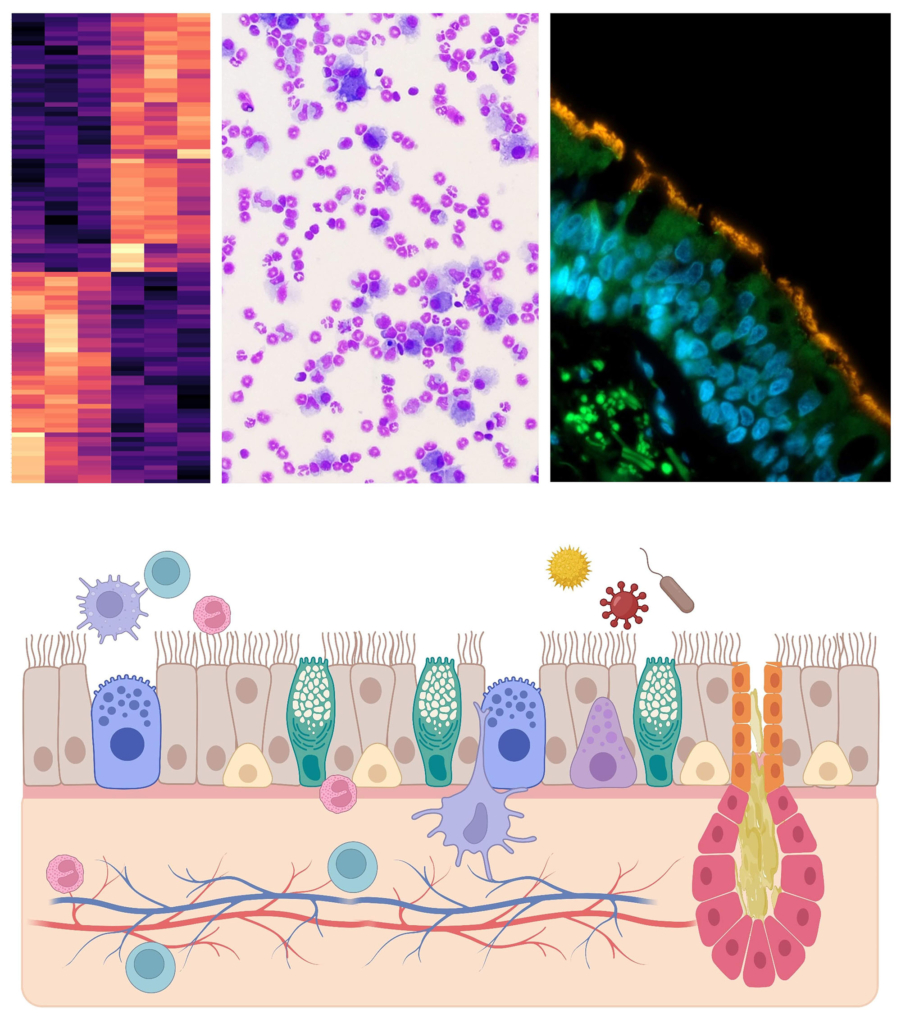
Translational Pulmonology
Forschung
Research on Genetic, Molecular, and Immunological Mechanisms in Chronic Respiratory Diseases
OVERVIEW

Our research team focuses on understanding the intricate and dynamic interactions between genetic, molecular, and immunological mechanismsunderlying chronic respiratory diseases such as asthma, COPD, cystic fibrosis, and fibrotic lung diseases. The group is also interested in discovering risk factors that contribute to organ rejection after lung transplantation and foreign body reaction to airway implants. The crosstalk between epithelial cells and the immune system, including T cells, monocytes, and macrophages, is being investigated to uncover novel disease-related mechanisms.
The team is dedicated to identify reliable biomarkers that can improve personalized medicine and to evaluate alternative treatment strategies for respiratory diseases. Through the development and application of mouse and human model systems, we analyze the function of causal genes and pathways as well as the efficacy of novel therapies, with the goal of translating our findings from bench to bedside clinical applications for improved patient care.
MODEL SYSTEMS
In vitro/ex vivo models (human and mouse):
- Primary cells (T cells, dendritic cells, monocytes, nasal and airway epithelial cells, endothelial cells, fibroblasts) and cell lines
- Samples obtained from patient cohorts (blood, bronchoalveolar lavage, sputum, nasal brushings, tissue biopsies, lung transplant tissue)
In vivo models (mouse):
- Models of experimental asthma (allergen, viral, bacterial)
- Genetic or functional manipulation of disease-related pathways
METHODS

- Cloning
- Genotyping of single nucleotide polymorphisms (SNPs)
- Electrophoretic mobility shift assay (EMSA)
- Chromatin immunoprecipitation (ChIP)
- Gene and protein expression analysis
- Multiplex ELISA
- Flow cytometry
- Histologic and immunohistologic methods
- Differentiation of primary epithelial cells (nasal, airway) in air liquid interface
- Human tri-culture model system
- Lung function analysis in mice
- Computational genetic and genomic analysis
- RNA sequencing (bulk, single cell, with collaborators)
- Proteomics studies (with collaborators)
CONTACT
Prof. Dr. rer. nat. Michaela Schedel-Bockholt
(maiden name for publications: Schedel)
Tüschener Weg 40
45239 Essen
